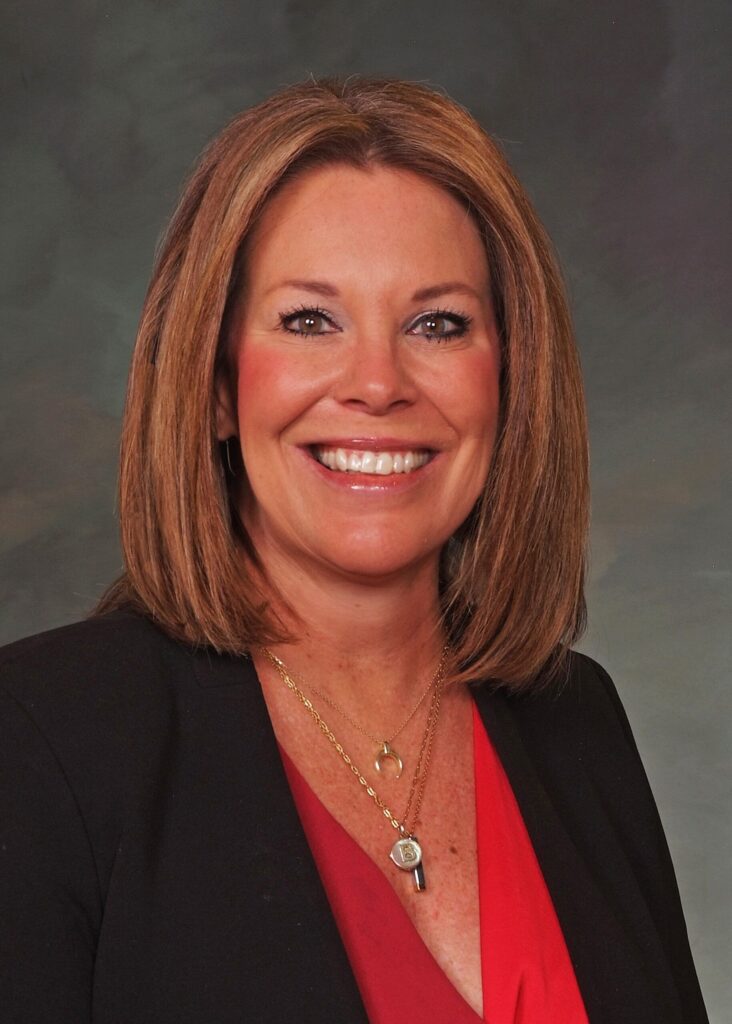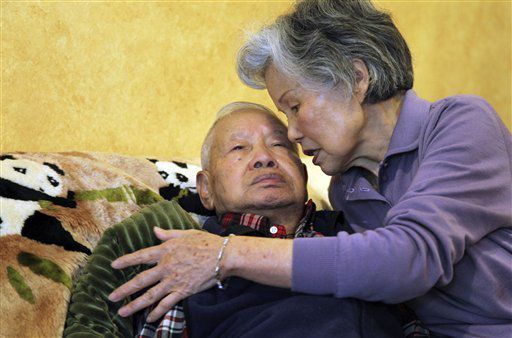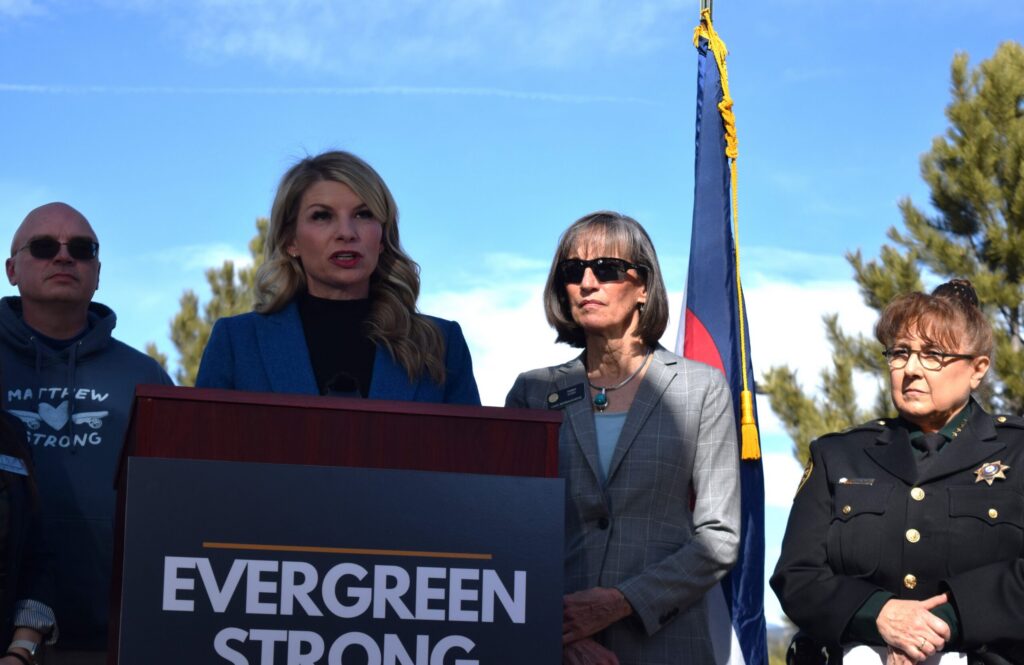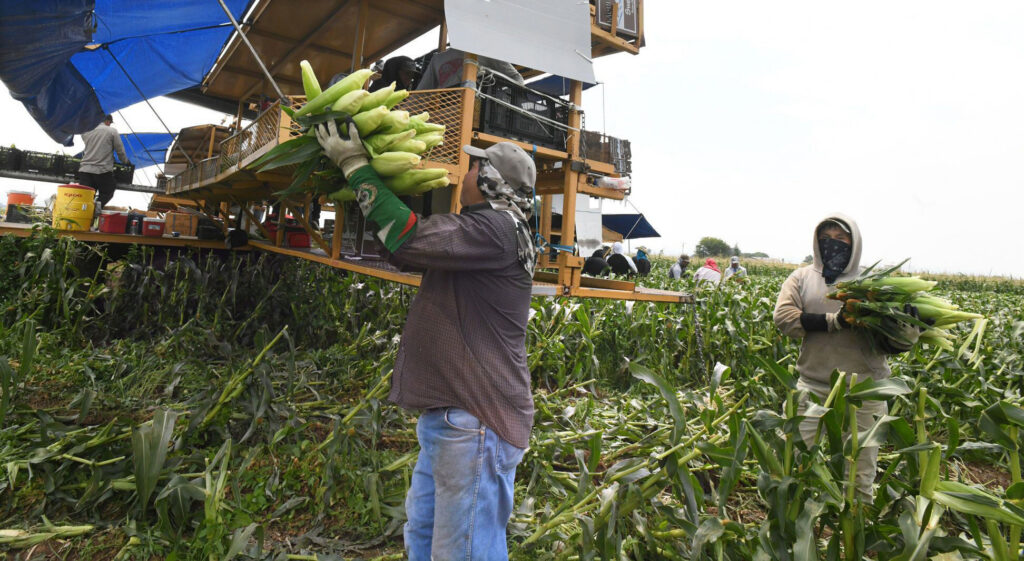Polis signs historic police reform bill, among first in the nation
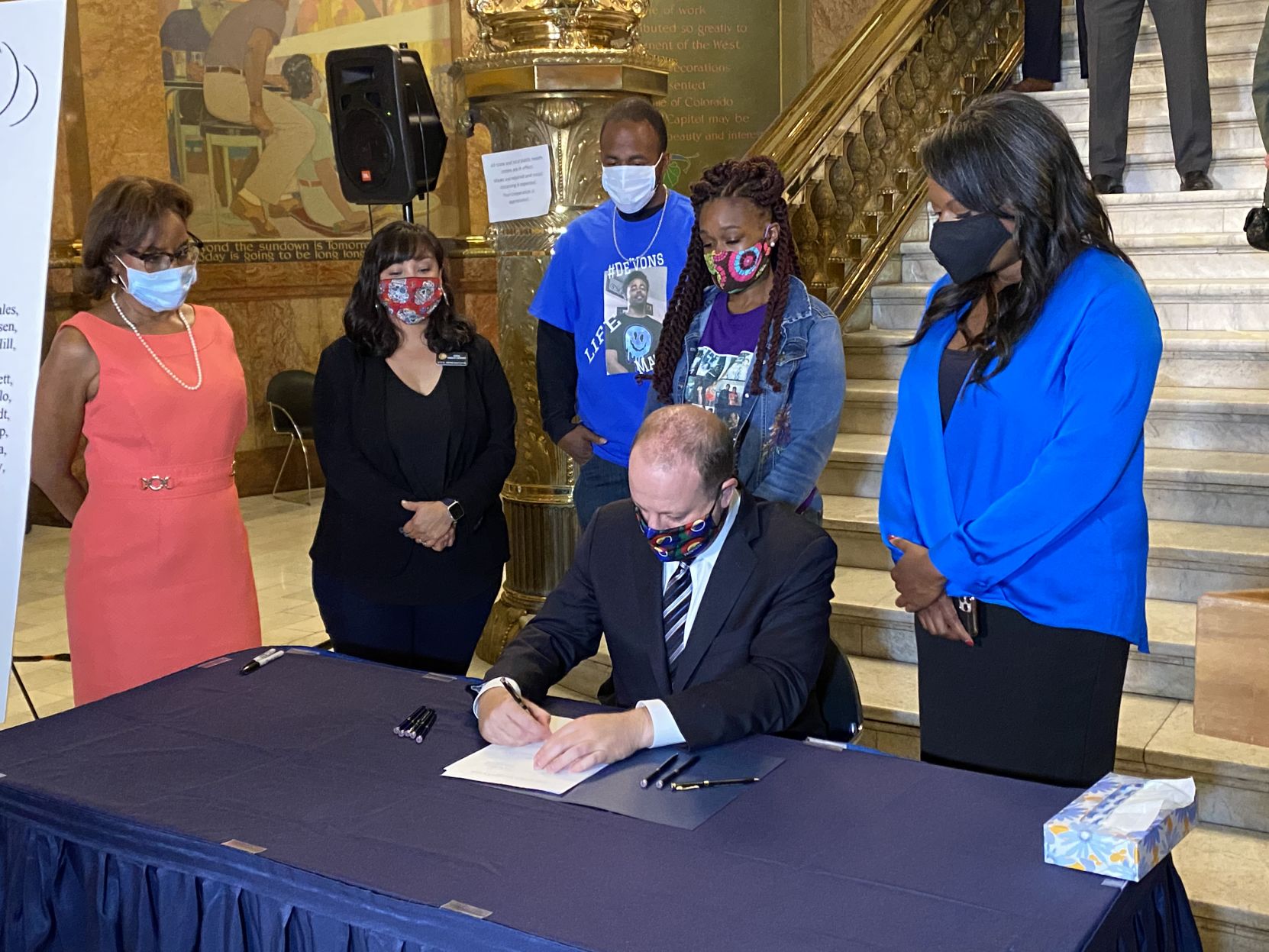
There were speeches of jubilation, gratitude and even anger Friday, as Colorado became one of the first states in the nation to act on police reform in the wake of George Floyd’s death.
“It’s now the law in Colorado!” Governor Jared Polis yelled immediately after signing Senate Bill 217 into law. Family members of victims, law enforcement officers, lawmakers and district attorneys stood behind him, stacked 6 feet apart, on the stairs of the Capitol’s west rotunda.
Polis reminded the crowd that the historic bill signing was happening on another important date: the 155th anniversary of Juneteenth, when the last enslaved Americans in Galveston, Texas, learned that they had been freed.
Colorado’s Enhance Law Enforcement Integrity bill, which was years in the making but took under three weeks to become law, will increase accountability and transparency within Colorado’s law enforcement system.
Among the changes to police departments under the new measure: officers can no longer use chokeholds, they must wear body cameras when dealing with the public, they cannot use deadly force unless they feel their lives are in imminent danger, and officers can be sued individually for misconduct for up to $25,000, or for 5% of the judgment. It also requires other officers to intervene if they feel that another is using deadly force.
“When they see another officer doing something wrong, killing somebody, assaulting somebody, knee on somebody’s neck for eight minutes and forty-six seconds without doing anything,” Rep. Leslie Herod, D-Denver told a cheering crowd after the bill’s signing. “If they don’t intervene, they will be personally responsible both criminally and civilly.”
Significantly, SB217 mandates that the division of criminal justice maintain a statewide database with data collected in a format which can be searchable by the public.
“We are going to have a database and we are going to be able to track these officers,” said bill co-sponsor Sen. Rhonda Fields, D-Aurora, at a press conference after the signing. “Just like you have information on us, we’re going to have information on you!”
Senate President Leroy Garcia, D-Pueblo, told Colorado Politics that lawmakers have rushed bills to signing before, but that this one is different. “This one is special because of community support. The people demanded accountability.”
“The original drafting of the bill was horrible,” Douglas County Sheriff Tony Spurlock said, noting that the bill addressed some policy that already exists. One of the biggest issues regarded body camera footage and potential witnesses. Spurlock said law enforcement sought to add language to the measure to protect the privacy of victims and witnesses,
“You can’t have a fair trial if everybody and their brother gets to see and hear everything that’s filmed. You just eliminated our ability to prosecute,” he said. “But we were able to come to an agreement that is good for the system of justice.”
Garcia was personally affected when marches got destructive on the first night of protests. His new truck was vandalized when protesters stomped on it and kicked through the windows as it sat in a parking lot outside of the Capitol. “It was worth it,” Garcia told Colorado Politics.
Ironically, the morning of the bill signing, he received word that the vehicle was totaled.
The bill was sponsored by Herod, Rep. Serena Gonzales-Gutierrez, D-Denver, Garcia and Fields.
The law was jammed into the final weeks of the legislative session and approved in the House on June 12 in a 52-13 vote with considerable bipartisan support, although some El Paso County Republicans were opposed to it. It passed the Senate 32-1 with the lone dissenter being Sen. Jerry Sonnenberg, R-Sterling, as the only no vote.
Herod said she has worked with and listened to the concerns of police officers and sheriffs deputies.
“We need to divest in law enforcement. That means when someone is having a mental health break that instead of getting a law enforcement officer, you get a mental health professional and maybe an EMT! How about that?” she asked the crowd.
Still, she says there’s more work to do. “This bill is not the end-all, be-all; it doesn’t change culture. I can’t legislate hate in someone’s heart.”
Colorado’s law enforcement community came out with a statement following the measure’s signing, saying that many of the requirements are already in place. Still, it stated, “Senate Bill 217 is an example of a collaborative process to help ensure justice and policing in Colorado is transparent and fair. So many people — advocates, lawmakers on both sides of the aisle, and law enforcement — worked tirelessly to improve accountability.”
The parents of De’Von Bailey stood over Polis’ shoulder watching quietly from behind masks as he signed the measure. Bailey was shot in the back by Colorado Springs police as he ran away from them during a suspected robbery stop last August. Bailey’s shooting was deemed justified by an El Paso grand jury and the family is now suing the Colorado Springs police department, claiming his constitutional rights were violated.
“I sat in there and I watched the governor sign this bill, which came a little too late. A lot too late,” Greg Bailey told the crowd outside the Capitol. “I’m hurt. I don’t know how to feel, but, how should I feel that it had to take something happening to another black man in another state for anything to happen here in Colorado? Everything they did to my son … is now the law.”
This story has been updated to add comments from Douglas County Sheriff Tony Spurlock.


